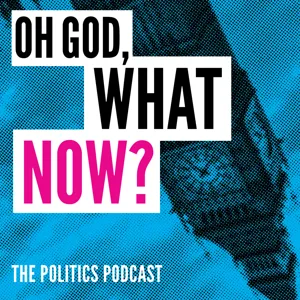Podcast Summary
The Complexity of Sovereignty in the UK: The UK's Brexit journey has highlighted the complexity of sovereignty, with legal, political, popular, and devolved forms in conflict. Parliament's increased legal sovereignty faces challenges from the executive, devolved bodies, and electorate, shaping the UK's political landscape.
Key takeaway from this episode of the A Level Politics Show is that the concept of sovereignty in the UK, particularly in the context of Brexit, is a complex issue with conflicting claims between legal, political, popular, and devolved sovereignty. The UK's departure from the EU has not settled the debate on where power truly lies or who holds the most influence over decision-making. While parliament may have increased legal sovereignty since Brexit, it still faces challenges from other centers of power, including the executive, devolved bodies, and the electorate. Understanding these various forms of sovereignty and their implications for the UK's political landscape is crucial for evaluating the impact of Brexit on parliamentary sovereignty.
Brexit and Parliamentary Sovereignty: Brexit restored UK parliamentary sovereignty, but ministers hold significant power through secondary legislation
The Brexit decision has led to a renewed debate about parliamentary sovereignty in the UK. Prior to Brexit, EU law held precedence over UK law. However, since the UK's departure from the EU, parliament has regained full legal sovereignty. This was demonstrated through the UK Supreme Court's ruling in the Miller case, which established parliamentary sovereignty over the executive's royal prerogative powers. The EU Withdrawal Act 2020 and EU Future Relationship Act 2020, both passed by parliament, paved the way for the UK's exit from the EU and established its trading relationship going forward. Some see Brexit as the beginning of a trend towards reversing the farming out of sovereignty to international institutions and returning it to Westminster. However, many of the powers returning to the UK are not subject to parliamentary jurisdiction but are instead wielded by government ministers in the form of secondary legislation or statutory instruments. While some argue that these exceptions are one-off and exceptional, the use of secondary legislation has few restrictions and can apply to any area of policy, giving ministers significant flexibility. The UK parliament's role in dictating the country's trading relationship may not be as straightforward as initially thought.
UK's sovereignty isn't absolute: The UK's sovereignty is influenced by international treaties, obligations, and political factors, not just parliamentary law.
Despite the UK's legal and political sovereignty, it is not absolute. The UK's signing up to the Northern Ireland protocol, adherence to international treaties, and commitments to international organizations limit its sovereignty. Parliament, while legally sovereign, does not have the final say on shaping legislation, as political sovereignty lies with those who influence decision-making, such as the governing party, prime ministers, and government departments. Parliament's assertion of influence over decisions has been increasing, particularly during the Brexit process, and standing orders like 24 have allowed it to take control of the parliamentary agenda when the government lacks a majority. Sovereignty is not fixed and is subject to parliamentary assertion and international obligations.
The Role of Parliament and the Executive in Brexit: Parliament has influenced Brexit but the executive branch, led by the prime minister, holds significant power in making day-to-day decisions. The balance of power between popular and parliamentary sovereignty continues to shift.
While parliament has influenced the timing and outcome of Brexit, the executive branch, specifically the prime minister and the government, holds significant power in making day-to-day decisions. The fusion of powers allows the government to control the parliamentary agenda and make decisions without parliament's formal involvement. However, the close results of recent elections and the divided popular will have empowered individual MPs and challenged parliamentary sovereignty, allowing parliament to take control in hung parliaments. The outcome of the EU referendum was seen as an instruction by many MPs, but the balance of power between popular sovereignty and parliamentary sovereignty continues to shift. Despite the government's strong majority, strikes and industrial unrest have led to the government dictating the response, highlighting the executive's role in decision-making.
The balance of power between Westminster and devolved bodies in the UK: The UK's parliamentary sovereignty allows it to make and enforce laws, but the Sewell Convention implies it should seek consent from devolved bodies. However, this convention isn't legally binding, leading to potential conflicts. The UK Supreme Court has upheld parliamentary sovereignty, but devolved powers are unlikely to return to Westminster soon.
The concept of sovereignty, the power to make and enforce laws, can be seen to reside not just with the UK Parliament, but also with the people and the devolved bodies in Scotland and Wales. While parliament retains ultimate authority, the Sewell Convention implies that it should seek the consent of devolved bodies for laws affecting their jurisdictions. However, this convention is not legally binding, leaving room for potential conflicts. The UK Supreme Court has ruled in favor of parliamentary sovereignty, denying the Scottish Parliament the right to trigger a second independence referendum and potentially challenging its recent approval of the Gender Recognition Bill. Despite these tensions, it's unlikely that devolved powers will return to Westminster in the short term, and a Labour government may even lead to more devolution in England. Ultimately, the balance of power between Westminster and the devolved bodies continues to evolve, reflecting the complexities of modern governance in the UK.
Parliamentary sovereignty in a state of flux: Parliamentary sovereignty is not absolute, it's constantly evolving with devolution, executive influence, and EU relations impacting the balance of power.
Parliamentary sovereignty is constantly being challenged and evolving, and Brexit has not fundamentally changed this dynamic. Devolution of powers to Scotland and other regions, as well as the influence of the executive and devolved bodies, have led to a complex web of sovereignties. While some powers have returned to the UK parliament post-Brexit, other forms of sovereignty, such as those held by the devolved bodies and the EU, remain. The future relationship between the UK and EU may also impact parliamentary sovereignty. It's important to note that parliamentary sovereignty is not an absolute concept, but rather one that is in a constant state of flux. The people, through their elected representatives, play a crucial role in shaping the balance of power between different forms of sovereignty. The trend towards devolution and the influence of other actors is likely to continue, making it essential to understand the complex interplay between different forms of sovereignty in the UK.





